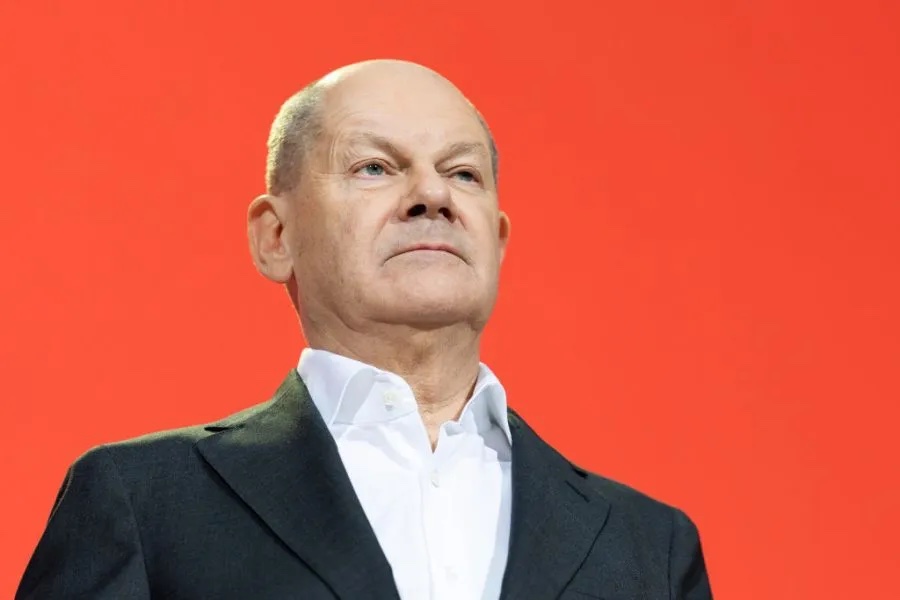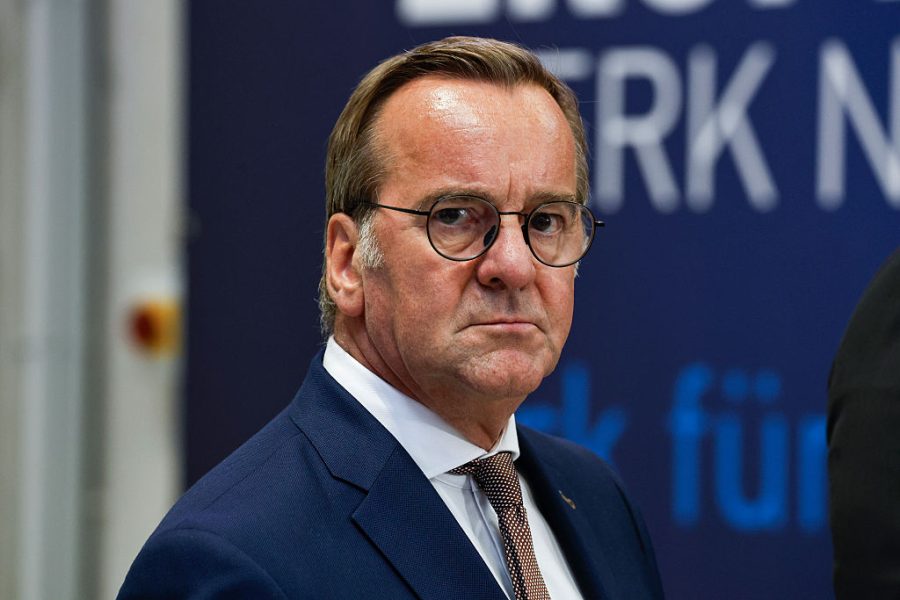Germany’s politicians have a short list of New Year’s resolutions: to make considerable improvement across the board. As the new year gets underway, the country is staring down the barrel of a federal election next month. Whoever comes to power must combat economic stagnation, get immigration under control, find a way to effectively collaborate with Donald Trump’s administration on trade and the war in Ukraine, and win back the reins of power within the European Union.
Last year was a turgid year for Germany. Not only did Germany’s federal government collapse in the wake of ongoing internal disputes between the three ruling parties, but the economy continued to stagnate with no hope of growth any time soon.
Just three weeks ago, chancellor Olaf Scholz deliberately lost a vote of confidence in the Bundestag to set up snap elections in February, roughly seven months before the regular federal elections were expected to take place. There was no singular reason why his government coalition in Berlin collapsed: Christian Lindner’s Free Democrat Party (FDP) had been locked in a series of never-ending spats with Scholz’s Social Democrats (SPD) and Green party and eventually initiated the breakup. But general dissension had hindered the coalition from achieving anything of significance for many months before that.
One major point of contention was how to resuscitate Germany’s economy, which has been struggling thanks to rising energy costs and a waning automotive sector, among other factors. The war in Ukraine ended the era of cheap gas being imported into Germany which had fuelled large parts of the economy. Many industries have struggled to adjust to rising costs over the past couple of years, although it would have been worse if Nord Stream II had come into operation in 2022, as the country would have been starting from an even higher place of dependency on Russian gas. The greatest divide among the major parties in Berlin is on how to fix things: one side, led by Scholz’s SPD, wants an increase in public spending, potentially violating the until-now sacred balanced budget amendment deliberately, while Berlin’s fiscal hawks — the FDP among them — believe that a trimming down of the state would revitalize the country.
Friedrich Merz, whose Christian Democratic Union is currently leading the polls and is therefore most likely to succeed Scholz as chancellor, leans towards preferring moderate public spending. However, a federal government led by him and his fellow conservative party members is very unlikely to significantly depart from the previous government’s economic course.
Merz certainly could introduce new forms of tax relief for individuals and businesses to help the domestic economy, but radical change is not on the horizon. As such, it is rather unlikely that he will retain the public support he currently has once he has sat in office for a year or so.
Whatever the criticisms of Angela Merkel’s final years as chancellor, Germany was blessed with political stability for over a decade during her tenure and escaped the fate of many European neighbors who have seen changes of government after almost every election cycle. While the financial crisis in 2008 handicapped Germany in the same way as other major European countries, Merkel’s time in power coincided with a period of economic growth.
Over his three years in charge, Merkel’s successor Scholz has damaged that growth. Now, Germany’s prospects seem dreary — at least for the next few years. GDP is expected to expand by a mere 0.3 percent in 2025, according to Goldman Sachs. The German Central Bank projects an even smaller increase of 0.2 percent. While increased public borrowing, as the SPD and Greens had hoped to implement, could in theory encourage private consumption and help the domestic economy in the short term, the bleak general outlook will nevertheless mean few people are ready to spend more than in previous years.
In reality, the only way to fix Germany’s stuttering economy is to once again boost industry exports, supported by fiscal certainty from the political class — especially the federal government. Whether that involves increasing the debt-to-GDP ratio, which has been among the lowest among major economies, is up for debate. A step in the right direction would be to try and head off the threat posed by Donald Trump’s incoming administration of heavy tariffs on imported EU goods and attempt to come to an agreement with the new US president on import exceptions for Germany. But, whoever they are, the next government must make decisions about public borrowing and then stick to them.
Consistency and determination are also necessary in the government’s dealings with migration and internal security. The recent terror attack on a Christmas market in the city of Magdeburg, which killed five and injured a further 235 at least, will add yet more fuel to the discussions over whether Germany needs to be tougher on immigration and monitoring radicalized immigrants. The perpetrator was a Saudi doctor who immigrated to Germany in 2006 and was a recognized political asylum seeker. The fact he is possibly mentally ill, had been an opponent of Islam since the 1990s and even supported the cause of the far-right Alternative für Deutschland Party makes the public discourse about the attack on December 20 particularly muddled.
The AfD’s success in state elections in the east of the country last year spooked Berlin’s centrist parties. They have finally bought into the idea of toughening up on immigration and, for instance, offering incentives to Syrian refugees to leave following last month’s the regime change in the country. But the AfD is now polling nationally at second place with around 19 percent of the vote and has a realistic chance of coming out ahead of the Social Democrats in February. While there is no chance for the far-right party to become a member of the new coalition in Berlin, it will continue to influence the political landscape, especially when it comes to immigration. If Germany’s centrist parties want any hope of fending off the AfD’s continued success, they will have to ensure they follow through with any election pledges they make on these topics.
This year will be a pivotal one for the ruling class in Berlin. While New Year’s resolutions usually end up being temporary in nature, if Merz and the Christian Democrats — or whoever else might take over the government — are not able to show significant changes to the public, Germany could enter a period of political instability it has not experienced for decades. Let’s hope, then, that Berlin’s politicians start the year as they mean to go on.


























Leave a Reply